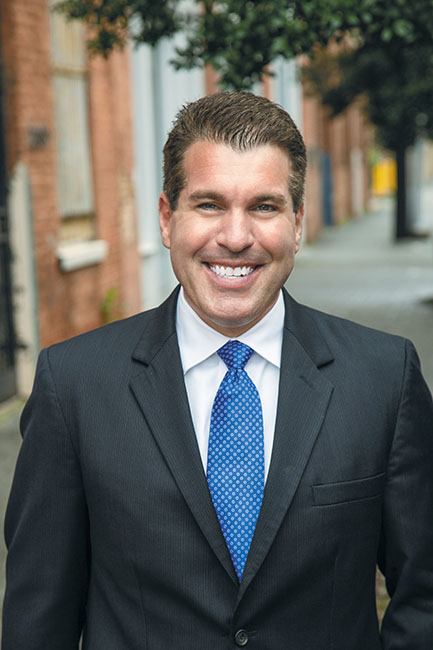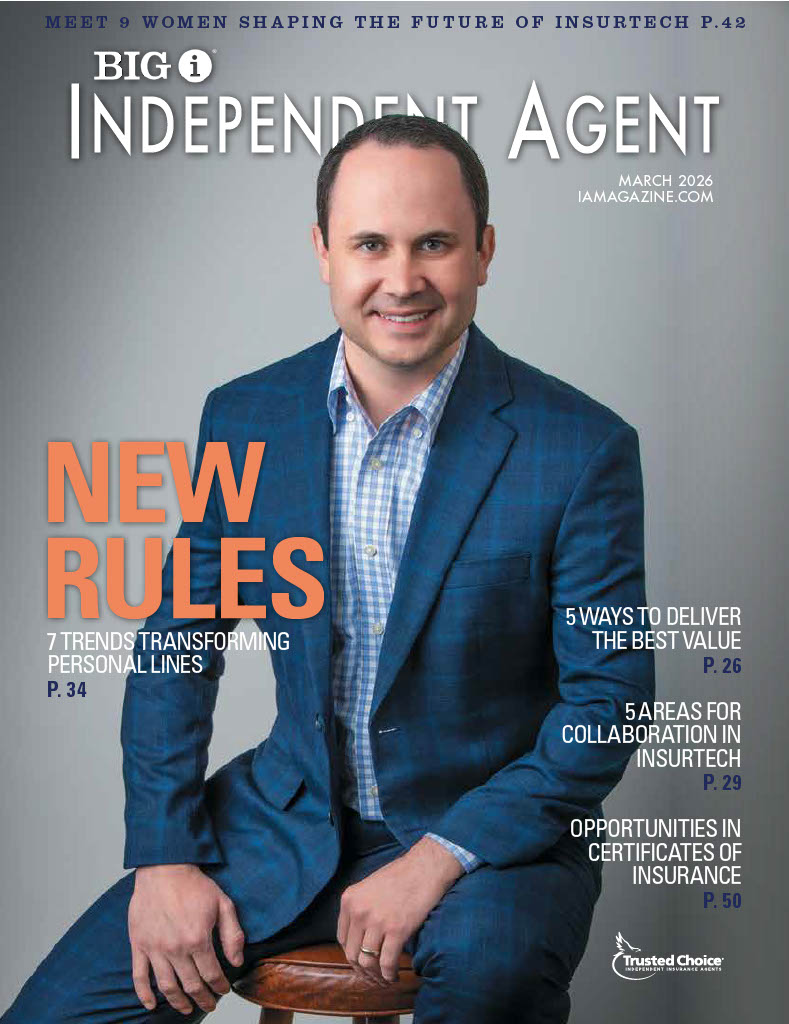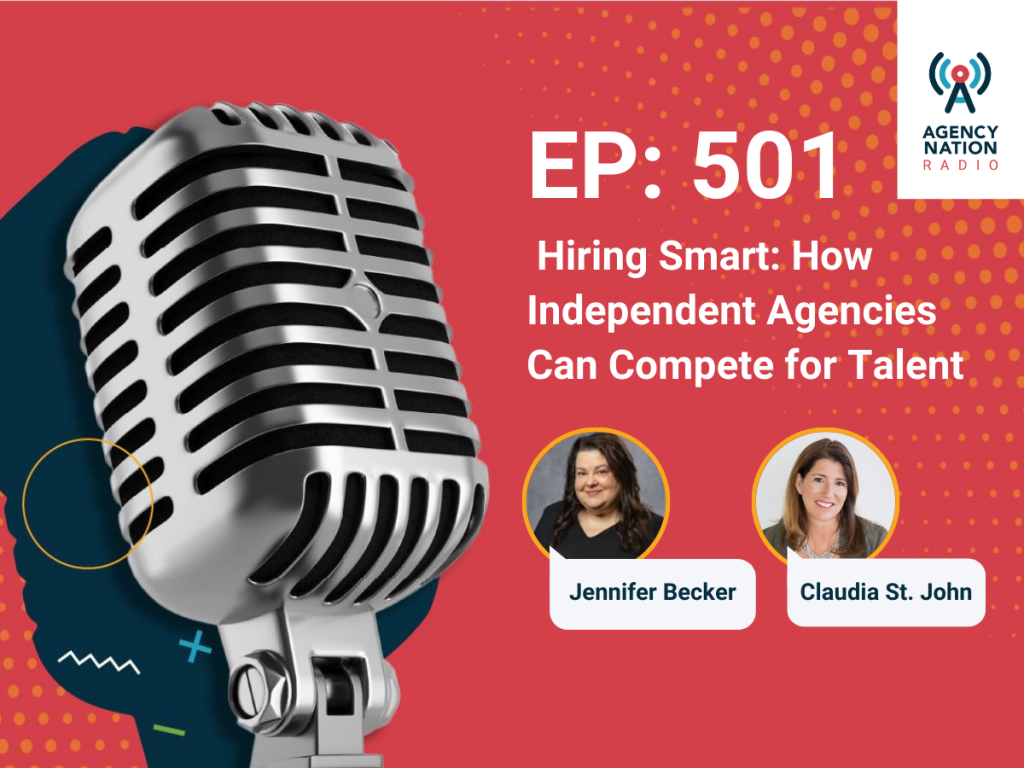The Long Game: Compensating New Commercial Producers

By: Jacquelyn Connelly
When John Byars, vice president and branch manager of Byars|Wright, sits down with a new producer, his biggest challenge is communicating what he calls the “long-term game plan.”
Especially when the new hire is a young, hungry salesperson coming from another industry, “they’re already making pretty good money,” says Byars, who leads sales efforts for the third-generation agency headquartered in Jasper, Alabama. “Although they’ve been successful in their current role, they realize it’s a job for a season. When you come work with us, it’s a career decision.”
The process of onboarding a new commercial lines producer, “unlocking their potential” through the agency’s mentorship program and finally hitting the validation mark can take up to five years, according to Byars.
“Before we agree on comp, we show them a roadmap of what their career path can look like,” Byars explains. “They get a clear picture of not only their first day but also the opportunities that lie ahead, because when somebody comes on board as a producer, the one thing I want them to understand is that there are absolutely no limits.”
With four locations around the Birmingham area, Byars|Wright employs 18 producers and brings in a little over $9 million in revenue a year—80% of which comes from commercial lines. But the agency is “slow to hire” producers—“we want to make sure we understand who they are, but more important, we want to make sure they understand who we are,” Byars explains.
“Once we start to understand what their purpose is, what their passion is and what they want to accomplish in life, then we can align their path with ours,” Byars says. “From an income standpoint, we don’t want anyone to take a cut. But at the end of the day, it needs to be a win for both sides. We give them the ability to define what that looks like.”
When determining the right compensation model for a new commercial lines producer, remember: What they want from their future is just as important as what they’re bringing to the table.
New to the Workforce
Gillian and Mike McCarron, owners of Lakeside Insurance Center, LLC in Arvada, Colorado, have found the most success hiring young producers who are brand-new to not only the industry, but the workforce. “We train them up, get them licensed, teach them insurance, and they’re on salary while they’re learning the industry,” explains Gillian McCarron, vice president.
“We like to start someone with a salary that fits their situation in life so they’re not struggling,” says Mike McCarron, president. “Everyone needs stability when they’re first starting out. You can’t train somebody for two months and then say, ‘Here you go, here are your numbers—start talking to people.’ That’s not how you set a new producer up for success. You have to give them some breathing room to explore the opportunity of selling.”
Al Diamond, president of Agency Consulting Group, Inc., encourages agents to ask young new hires to submit a budget that outlines exactly how much money they need to pay their bills each month.
“I’m not interested in what they have made in their previous employment and put away in savings, because I’m not going to pay them money they can put away in savings before they earn it,” Diamond says. “But in order to take the pressure off of a new producer, you have to give them enough to pay the rent, keep their kids fed and clothed—afford the normal expenses of life.”
“You don’t want them to be satisfied, but you don’t want them to go home at night and be hungry,” agrees Bob Pettinicchi, executive vice president and chief lending officer at InsurBanc, a division of Connecticut Community Bank, N.A. “You can’t simply throw a new producer out there and expect them to close business when they’ve never closed business.”
For someone coming straight out of college, then, “the compensation model could be a 100% draw for a period of time,” Byars says. “Then, that draw will begin to decrease in year two or three, when they start getting paid a percentage of the business they’ve written. That way they’re starting to see some of the benefits of their hard work.”
Lakeside’s full-time commercial producer is currently “transitioning off of salary,” Gillian McCarron notes. “We guarantee him a set amount every month. If he doesn’t get that with his commission, we’ll pay the rest to get him up to the monthly amount that we sat down and agreed upon. If he’s over his threshold the following month, we’ll retain the amount we paid for him the prior month. But he never goes in the hole.”
As a young producer gets closer to validating, the comp model gradually shifts to “mostly commission,” Mike McCarron says. “We take down their salary component because they have more certainty around how much new business and renewal commission they’re going to get. It’s very deliberate—we’re checking in every three to six months to make sure both parties are OK and moving steadily toward that goal of full autonomy.”
New to the Agency
Compared to a recent college graduate, who “may be living at home and only needs a few thousand dollars a month,” hiring an older, more seasoned salesperson will require a larger investment initially, Diamond says: “If you have a 35-year-old with a family, you may need to pay him $50-60-70,000 a year just to keep his bills paid.”
Experienced new producers are “not likely to move unless you match what they’ve been paid before, which means you’re taking agency money and allowing them to put it in the bank before they earn it,” Diamond says. “But it will still take them three years to validate, because they’re asking for more money on the front end.”
“If they’re making a move from an existing job, there’s a salary requirement that they’ve built their life around, so you’re going to have to be prepared to bridge that,” agrees Brian McNeely, partner at Reagan Consulting. “But if you’re paying them a higher salary, there’s also the expectation they should be able to do more, quicker. The learning curve shouldn’t be nearly as steep.”
That’s been the case for Ed Gillman, lead problem solver, Gillman Insurance Problem Solvers in Alpharetta, Georgia, who employs two producers as independent contractors: a prior agency principal who sold his agency, retired and wanted to get back into the game; and a producer from another agency who was looking for an opportunity that provided more autonomy.
Both producers are paid pure commission. “They don’t want to be employees, they don’t want to be governed or monitored, and I don’t want to do that, either,” Gillman says. “I want people who just go out and hunt. You have to reconcile the fact that you’re going to pay them more than you want, because otherwise it’s not worth it for them to do the job. But I firmly believe, at the end of the day, it’s a better deal.”
Gillman also employs a producer who specializes in trucking—an internal employee he acquired when he bought another agency’s book of business—as well as a photography niche specialist who started out as a CSR. The trucking specialist is paid a draw against straight commission, but as an internal employee, he also receives benefits and shares in office contingencies and overrides.
The photography specialist, meanwhile, is a “jack of all trades” who handles both service and sales, Gillman explains. She receives a base salary plus incentives for new business and client retention—an arrangement in which “probably 25-35% of her income comes from additional comp over the salary, but the salary never really changes. Our philosophy is that we don’t really give raises. If you want a raise, I’ll give you the opportunity to earn it.”
Beyond Dollars
A customized approach to comp is crucial because “commission doesn’t necessarily motivate everyone,” says Gillian McCarron. “One of our employees came to us and said, ‘I just need to have a guaranteed amount every month.’ Others like getting a piece of the new business they write. With the different personalities in an agency, what works for one doesn’t necessarily work for the others.”
Dollars, period, don’t necessarily motivate everyone, either. “Compensation alone is not going to change behavior—just because you pay somebody more doesn’t mean they’re going to produce more,” McNeely observes.
For young new hires specifically, the conversation should involve an explicit discussion about opportunities for advancement.
“It’s important to paint a clear picture for them of what success looks like, and what that means not only from a tangible compensation perspective, but also what other rewards might be available—ownership opportunities, deferred compensation, extra bonuses, whatever the case may be,” McNeely suggests. “You need to make it clear that you can help build an asset for someone’s long-term future versus just helping them collect a paycheck.”
 Making that connection is a crucial component of not only a new producer’s success and staying power, but also your agency’s future survival. “Hiring new producers is not just about new business,” McNeely says. “As the agency and the industry has continued to age, if you’re not replacing your production talent, you’re going to have a tough time keeping the business that’s already on the books that is currently serviced by producers that are retiring in the next couple years.”
Making that connection is a crucial component of not only a new producer’s success and staying power, but also your agency’s future survival. “Hiring new producers is not just about new business,” McNeely says. “As the agency and the industry has continued to age, if you’re not replacing your production talent, you’re going to have a tough time keeping the business that’s already on the books that is currently serviced by producers that are retiring in the next couple years.”
“You want people who are motivated to succeed—people who are motivated potentially to own,” Pettinicchi agrees. “But motivation only gets you so far, so they also have to be the type that are capable of that challenge. You can surround yourself with people who can sell insurance reasonably well, but if none of them are going to grow in the role and be in the position to be a successor, you may find you have no choice but to sell your business.”
For Byars (pictured right), the win-win long game is what it’s all about. Once a new producer has validated and displayed the potential to lead, they step into a role as a sales mentor for another young producer, which can result in an opportunity to become a sales or branch manager.
“When I’m hiring a 23-year-old, for example, I explain to them, ‘If you come on board with us, your first three to four years are going to be a grind. But as you approach 30, you might get married, have kids—things are going to happen in life. We’re just as committed to your personal relationships as we are the professional,’” Byars explains. “It’s a family approach. That is our commitment.”
Jacquelyn Connelly is IA senior editor.










